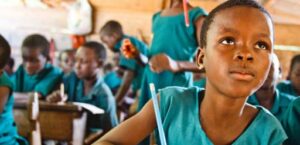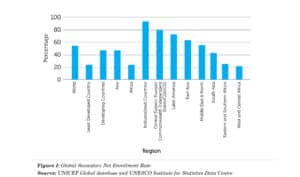Bridging The Educational Gap In Africa

Human capital is the stock of knowledge, habits, social and personality attributes, including creativity, expressed in an individual’s ability to perform labor so as to produce economic value. Human capital is a major determinant of economic development, while education is the tool required to build human capital.
Primary education is essential as it is the foundation and first step for many in the learning process. There has been an increase in the number of students that enroll in primary schools in Africa, between 1990 and 2012 the number of students registered in primary school more than doubled from 62 million to 149 million children. So far, 15 sub-Saharan countries have abolished primary school fees enabling more children to attend. However, no African country has achieved universal primary education. For a country to achieve this, all children in the country must complete primary school. In 2012, 58 million children of primary school age were out of school globally and 38 million of them were in Africa. At the moment approximately 50% of African children will never go to school, many of whom live in rural areas. Young people living in rural communities have limited access to education compared to youth in urban areas as 70% of rural youth have never attended school. The rural areas are seriously deficient in the amenities needed for education.
The next level of education is secondary. Between 1999 and 2012 sub-Saharan Africa had the highest participation in secondary education compared to all other regions of the world and in 2012 there were 552 million youth enrolled in secondary schools worldwide with 49 million of them in Africa. However, there are not enough secondary schools in Africa as the existing facilities across the continent meets the needs of just 36% of the secondary school age population.
Secondary net enrolment rate is the enrolment of the official age-group for secondary level of education expressed as a percentage of the corresponding population.

